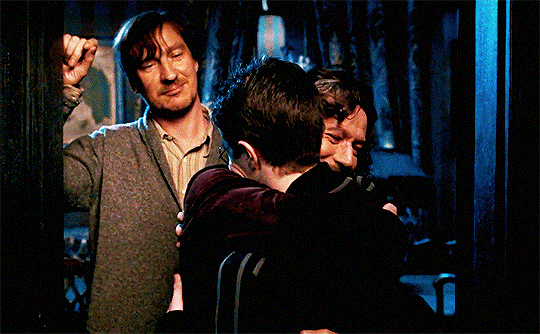Text
i’m bipolar and bisexual and i really need a third identifying feature so i can be bi bi bi
80 notes
·
View notes
Text
Who needs sex when depression fucks me daily
242 notes
·
View notes
Photo

HUFFLEPUFF: “It is one of the blessings of old friends that you can afford to be stupid with them.” –Ralph Waldo Emerson (Emerson in His Journals: 31 August 1838)
190 notes
·
View notes
Photo





There’s been trials and tribulations. You know I’ve had my share. But I’ve climbed a mountain, I’ve crossed a river, and I’m almost there.
804 notes
·
View notes
Text
you weren’t born thinking that the way you looked was wrong
256 notes
·
View notes
Photo




THE WEST WING 2.01 – “In the Shadow of Two Gunmen: Part I”
579 notes
·
View notes
Text
im gonna say it
having d.i.d or osdd doesnt make you broken having tourettes doesnt make you broken being autistic doesnt make you broken having adhd doesnt make you broken having ocd doesnt make you broken having a personality disorder doesnt make you broken having bipolar disorder doesnt make you broken having schizophrenia doesnt make you broken having a psychotic disorder doesnt make you broken having depersonalisation, derealisation, dissociation, etc. doesnt make you broken having dyslexia, dyscaluclia, dysgraphia, etc. doesnt make you broken having ptsd or c-ptsd doesnt make you broken having an eating disorder doesnt make you broken having a depressive disorder/depression doesnt make you broken having an anxiety or panic disorder doesnt make you broken having literally any mental disorder or neurodivergency that i havent mentioned here doesnt make you broken. and… thats that! you are not broken, you arent a burden, you arent ‘‘crazy’‘, you arent unlovable, and you arent a bad person. youre worthy of love, youre worthy of kindness, youre worthy of life and a community. this is incredibly corny but its true.
6K notes
·
View notes
Text
To every fic writer, journalist, or other people who protray hypo/mania as some wonderful side effect:
Bipolar hypo/mania is a serious issue. Stop glorifying it as a productive, pleasant thing. It’s not. It really isn’t. It’s terrifying– you barely feel in control of your thoughts and actions, you’re constantly on to the next thing because nothing stimulates you enough to hold your attention, and you just bounce from thing to thing, never satisfied but unable to really feel it. or worse, you hyperfixate on something and literally nothing else matters except that one thing. Not eating, drinking, sleeping, nothing. Only that one thing and nothing more. It can last for days, with no end. It’s terrifying, and Im tired of seeing it as just a “happy, productive moment in your life!” because it’s really, really not. Don’t kid yourselves.
425 notes
·
View notes
Text
Me: I’m gonna get so much done today! The depressive episode I’m currently in:

511 notes
·
View notes
Text
when you see your therapist but there’s nothing to talk about because you’re on mood stabilizers and therefore barely have emotions anymore

990 notes
·
View notes
Text
*Can’t sleep for one night*
Me: Is this hypomania?
*Buys something impulsively*
Me: Is this hypomania?
*Actually holds a conversation easily*
Me: Is this hypomania?
*Is actually in a hypomanic episode*
Me: *Has no idea*
3K notes
·
View notes
Text
I need more people to actually read and listen to bipolar people discussing our own experiences because there's no reason i should have to spend an entire documentary series about elisa lam (who was bipolar) watching random youtubers say "Her behavior didn't make sense! Her mental illness had nothing to do with it!" about things that are all incredibly fucking common symptoms of bipolar disorder
9K notes
·
View notes
Text
BPD Symptoms and Features
**please note: the following post was originally posted by kellyann-graceful-warrior and has been reposted here by me and bolded and italicized to reflect which symptoms i feel apply to myself**
BPD is a chronic mental disorder of emotional dysregulation+hypersensitivity due to factors such as:
-A result of an overactive autonomic nervous system (fight or flight- functions associated to panic, anxiety, anger reactions, etc) -An under-active parasympathetic nervous system (The system that is responsible to regulate the autonomic nervous system) -Less active and smaller in volume abnormalities in the limbic system which has functions linked to: emotional reactions, memory, decision making, motivation, behavior, learning and developmental ability, thought pattern, instincts, psychotic symptoms, seizures, and senses/the way the body perceives external stimuli. -Reduced volume in frontal lobe which has functions linked to: decision making, communication responses, ability to comprehend consequences, emotional-based memories and triggers, and relations to people, events and situations. -Abnormal blood flow to parts of the brain that control emotions, resulting in one to be more reactive -Emotional reactions firing off 20% longer -A ton of other factors Here are the 9 main symptoms noted in the criteria and research. 1. Extreme reactions to real or perceived/feared abandonment, rejection, or criticism 2. Splitting and idealization/devaluation 3. Identity disturbance- impoverished self image/self esteem and sense of self, dysphoria, despising ones self, and extreme instability and no direction towards the future, aspirations, goals, [career] plans, values, etc 4. Impulsive behavior- a sense of urgency to relieve intensity of emotions from stimuli, often self damaging (spending sprees, binge eating, steal, substance abuse, etc). 5. Reoccurring suicidal behavior/ideations (gestures, extensive thoughts, planning, role playing) and self-harm 6. Intense rapid cycling of affective instability due to hypersensitivity+dysregulation reactions 7. Depressive symptoms- chronic feelings of emptiness, frequent feelings of being miserable, shame, self-inferiority, and extreme difficulty recovering from such feelings 8. Intense anger and/or aggression reactions- frequent anger easily triggered from incidents 9. Paranoia/panic and dissociation reactions (often in response to stresses/anxieties) [People with BPD may often experience reactions/episodes of psychosis- paranoia, hallucinations, delusions, body dysmorphic figures, etc, as well]
Then there are hundreds of other symptoms and features to this very complex, and unfortunately, highly stigmatized and misunderstood disorder. Here are a few indicated in research. (Note- One with the disorder may display some or most of these, but nothing is guaranteed as each person with the disorder is an individual, so don’t use these as assumptions. Some may not have the same symptoms as others, and no person with it is portrayed the same way. They are rather a guideline to mental health workers because they are often seen and developed from the disorder and symptoms). (ALSO NOTE- Others without it can obviously ‘display/relate’ to some of this from time to time once you take a look, but the reasoning, cause, severity, and pattern is different and this is a chronic disorder.Please note it’s completely different than that and that this post is just for awareness/education purposes since not many know about it- how to deal, what to expect, etc. Percentages show that 8/10 of these individuals attempt suicide, while 1/10 complete it. Stigma and assumptions don’t help, but awareness does. 10. Anxiety, nervousness 11. Headaches/migraines are common 12. Seizures 13. Higher nociception (pain tolerance)- Studies show alterations in pain processing in over 50% of those with BPD. The result of this comes from different systematic responses and antinociception and may be a result of long-term self harm behavior in some cases). 14. Distorted/irregular eating patterns- reduced food intake, impoverished diet, etc 15. Obsessive compulsive features- intrusive thoughts in the thought pattern/processes, repetitive behavior as a result of self harm, paranoia, distress, etc, and repetitive speech, to name a few 16. Self discipline/work orientation as a result of OCD features 17. Attachment 18. Extreme reckless-daring behavior 19. Baiting 20. Unstable relationships 21. “Always” and “Never” statements/reactions (splitting) 22. Sleep deprivation or irregular sleeping patterns 23. Voice changing 24. “Acting out” 25. Extreme curiosity and interest 26. Dependency 27. Sarcasm 28. Promiscuity 29. Mimicking/mirroring 30. Flashbacks 31. Nightmares 32. Difficulty processing information 33. Difficulty focusing and concentrating and poor attention span 34. Consistent/radical change of appearance 35. Certain feelings of fear, negativity, or rejection of authority/people of “high importance” in their mind. 36. Alluring/seductive behavior 37. Extreme need for acceptance 38. A need to prove themselves over and over as identity may be graded on a scale of what was done that very day 39. Extreme apathy, boredom, dullness, and indifference 40. ‘Flat affect”- lack of emotional reactivity and inability to express/show emotions due to depression, absence of emotional response 41. Creative thinking 42. Studies show some are able to read others easily from such hypersensitivity; however, often mistaking neutrality as anger probably as a result of symptoms 43. Isolation 44. Defensive 45. Magical thinking (assumed correlation, interconnection, etc) 46. Fantasizing 47. Panic attacks 48. Anxiety Attacks 49. Hypersensitivity to caffeine, alcohol, some sugars and foods. Often described as being “allergic” to such things as it causes reactions from hypersensitivity and symptoms. 50. Memory lapses- a result of dissociation, intense reactions, etc 51. Extreme perfectionism 52. Avoidance 53. Euphoric reactions 54. Detachment 55. Avoidance of eye contact 56. Difficulty transitioning with life aspects such as changes to plans and arrangements 57. Difficulty with awareness 58. Sensitivity to senses- light, sounds, temperatures, etc- from hypersensitivity 59. Resistance 60. Difficulty with decision making, poor decisions, and/or indecisiveness, insecurity 61. Difficulty completing tasks 62. “Rapid” or excessive speech
63. Restlessness, difficulty relaxing, feelings of “being on edge.”
64. Extreme sense of security, comfort, and connection with animals/nature and inanimate objects such as transitional objects
65. Undermining a goal, success, or relationship
66. Often occurs with PMDD (Premenstrual dysphoric disorder) or worse reactions to menstrual cycles because of the hypersensitive and systematic changes
67. Extreme difficulty and lack of object consistency (inability to recall that people or objects are ‘still there,’ consistent, and reliable when they are not currently being physically seen/there and difficulty maintaining these feelings
68. Flight of ideas, racing thoughts, rapid thought patterns
69. Brief remission of symptoms in response to certain events (positive reactions)
70. Disrupted or delayed life aspects- education, relationships, jobs, etc
No particular order. If you may need a source, example, description/explanation for more understanding for any of these, feel free to ask :)
3K notes
·
View notes
Text
Mental Health Questions:
How old were you when you first started to realize something was wrong?
How do your parents handle your mental health?
Have you dealt with any trauma?
What is/are your diagnosis?
Have you ever been admitted into a psych ward? How many times? What was it like?
Does anyone else in your family struggle with mental health?
What are your top five coping skills?
What are your triggers?
Do you have a support system?
Write a letter to yourself when this all started- Dear ___ year old me,
Write a letter to yourself ten years from now.
What is/was school like for you, do you have many friends?
What does an average day look like to you?
Do you have a job? What is it like working with your diagnosis?
What medications are you on? Does it seem to help? What are the bad side effects of this medication that you have dealt with?
Are you in a relationship (romantically)? What is it like to be in a relationship with your disorder?
Do you have any siblings? How do they handle your mental health?
What are your dreams? Do you feel like it will be hard to fulfill them due to your disorder? Do you have a plan to accomplish this?
Write a letter to your parents.
Ask your own question.
2K notes
·
View notes
Text
February 2021
The last year has been just short of horrific...but in all candid honesty it does feel like it’s improving.
So what’s new? Still Bulimic. Still Anxious. Still Dyslexic.
What’s NEW?
I was diagnosed with Bipolar 2 and “borderline” borderline personality disorder.
I’m in therapy and DBT skills.
I no longer smoke every day because I learned this year that it was stifling me- masking me. Still enjoy it here and there tho- and by enjoy it I mean enjoy perhaps one hour and then get into my own head for the rest of it.
0 notes






